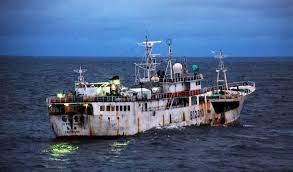Nigeria records 6% drop in vessel traffic
February 25, 2021959 views0 comments
By Onome Amuge
Nigeria witnessed a decline in the number of vessels that made port calls to the country in 2020 as a total of 3,972 vessels sailed into the country’s seaports compared to 4,251 vessels recorded in 2019, representing a 6.6 per cent drop.
 Similarly, the volume of imported commodities (cargo throughput) also dropped by 2.1 per cent within the same period under review as Nigeria recorded a total of 78.4 million metric tonnes of cargo in 2020 compared with a total of 80.2 metric tonnes the previous year.
Similarly, the volume of imported commodities (cargo throughput) also dropped by 2.1 per cent within the same period under review as Nigeria recorded a total of 78.4 million metric tonnes of cargo in 2020 compared with a total of 80.2 metric tonnes the previous year.
Read Also:
Hadiza Bala-Usman, managing director of the Nigerian Ports Authority (NPA), who made the disclosure in a virtual conference, blamed the drop in cargo volume on the effects of the outbreak of Covid-19 pandemic.
Bala-Usman assured that the figures would improve in the first quarter of 2021 as the NPA is making efforts targeted at easing the sail of vessels into the country amid improvements in covid-19 vaccinations in many of the affected countries.
Reflecting on the impact of the covid-19 pandemic on vessels, Jonathan Nicol, president, Shippers Association Lagos State (SALS), noted that countries like China and others where Nigeria imports a large chunk of its commodities were being affected by the virus as most of them were on lockdowns, resulting in shut factories and difficulties in transporting the commodities to Nigeria.
According to Nicol, if the situation is not placed under control soon, it would adversely affect the shipping sector as Nigerian ports will be barred from receiving more goods in the first quarter of 2021.
He added that the persistence of the second wave, if not controlled soon, would most likely affect imports as nobody is permitted to clear goods in other countries’ ports.
He advised maritime agencies at the ports to comply with protection measures, as well as, direct their staff and workers to always wear their nose masks and observe every other guidelines.
